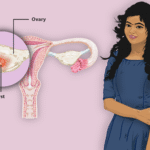Crohn’s disease is a form of inflammatory bowel disease (IBD) marked by chronic inflammation anywhere along the gastrointestinal (GI) tract, most commonly affecting the end of the small intestine and the start of the colon. This condition causes patchy, deep inflammation that can disrupt digestive function and lead to various symptoms. Diagnosis via a colonoscopy and long-term management is often needed to address symptoms and complications.
What Is This Condition?
Crohn’s disease differs from other types of IBD as it may impact the bowel wall’s full thickness and appear in segments, leaving areas of healthy tissue between inflamed portions. This inflammation can result in abdominal pain, strictures, and fistulas. Although the exact cause remains unknown, research suggests that Crohn’s disease develops through a complex interaction of genetic predisposition and immune system responses.
Symptoms often vary in severity and may come on slowly or suddenly. They typically include diarrhea, abdominal pain, bloody stool, fatigue, fever, and reduced appetite. Some individuals may experience symptoms outside the digestive tract, such as joint pain, skin inflammation, eye irritation, or kidney stones. Crohn’s disease can follow a pattern of symptom flare-ups alternating with periods where symptoms decrease or disappear.
Can a Colonoscopy Diagnose It?
Diagnosing Crohn’s disease is a process involving clinical evaluation and a combination of tests, as no single test can confirm the diagnosis. Physicians begin with a review of medical history and a physical examination to assess symptoms and rule out other possible causes. A colonoscopy is one of the main procedures used for diagnosis. During a colonoscopy, a gastroenterologist examines the colon using a thin, flexible tube with a camera. The physician looks for inflammation, ulcers, and lesions, and may take biopsies from the intestinal lining for laboratory analysis to help identify characteristic patterns associated with Crohn’s disease.
Other diagnostic tools include:
- Blood Tests: These tests may reveal anemia, which can result from chronic bleeding, and elevated markers of inflammation.
- Stool Studies: Stool samples help rule out infections from bacteria, viruses, or parasites that might cause similar symptoms.
- Upper Endoscopy: This procedure allows visualization of the esophagus and stomach. Biopsies can be obtained during this process if necessary.
- Imaging Tests: Cross-sectional imaging, such as CT scans and MRI, helps identify inflammation, thickening, strictures, or fistulas along the GI tract.
Each of these tests provides key information to differentiate Crohn’s disease from other GI disorders and determine the extent and severity of inflammation.
How Is It Treated?
Since there is no cure, treatment aims to manage inflammation, promote periods of remission, and address complications. Treatment strategies are tailored to the location and degree of disease activity, existing complications, and patient response to prior therapies. Common medication types include:
- Anti-inflammatory Medications: Drugs such as corticosteroids may be prescribed to alleviate inflammation during active flare-ups.
- Immune System Suppressors: These medications decrease immune activity, helping control inflammation and maintain symptom control.
- Biologic Therapies: These drugs target specific components of the immune response and can be used for moderate to severe Crohn’s that has not responded to other medications.
Alongside medication, dietary and lifestyle changes may be recommended to manage nutritional needs and reduce GI symptoms. When medical therapies do not sufficiently control symptoms or when complications such as strictures or fistulas occur, surgical intervention may be required.
Speak With a Gastroenterologist
Diagnosing and managing Crohn’s disease requires the guidance of a medical professional familiar with digestive health. Many digestive symptoms overlap with other conditions, making specialist evaluation an integral step. A gastroenterologist can help determine the cause of symptoms and develop an individualized management and monitoring plan.














